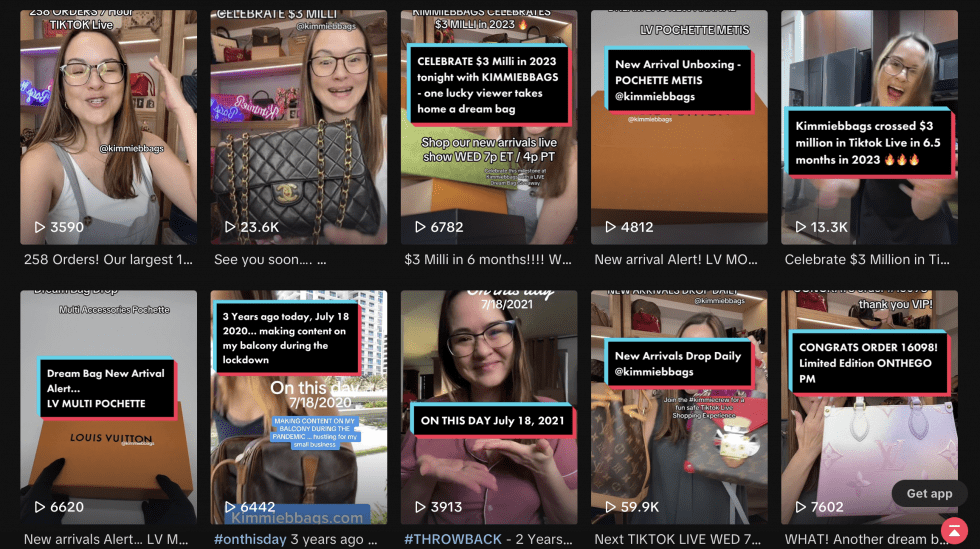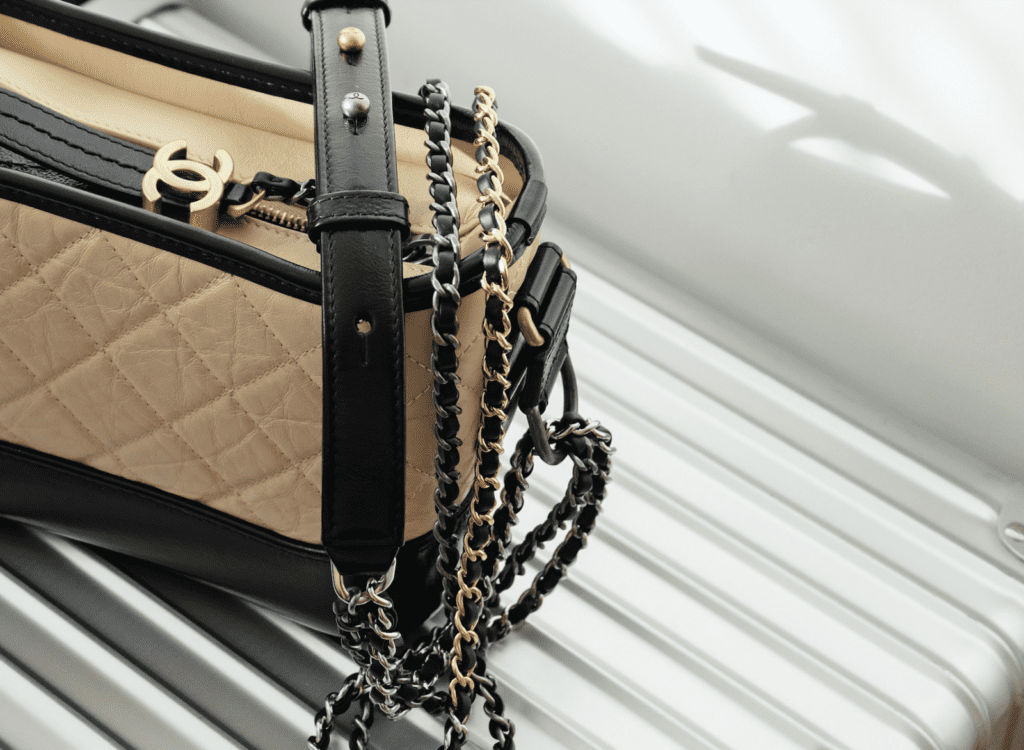TFL EXCLUSIVE – TikTok is preparing to roll out directly-owned and operated e-commerce capabilities in the United States in a move that is being characterized as “largely unprecedented among Western social media companies.” Looking to supplement its TikTok Shop feature, which enables brands to sell products on via the heavily-trafficked social media platform in exchange for a commission, the new in-app shopping hub that TikTok has in the works is expected to function like Amazon’s marketplace with products supplied by manufacturers in China, as TikTok seeks to replicate the American success of China-founded rivals, Shein and Temu, the Wall street Journal revealed this week.
The new venture, which is slated to launch next month, will be distinct from TikTok’s currently-live Shop feature. Semafor reported last month that Bytedance-owned TikTok is in the process of purchasing its own inventory – ranging from clothes and toys to electronics and kitchen gadgets – which it will store and ship. “Users will be able to browse goods from both the new store and [the existing] TikTok Shop through a dedicated e-commerce tab within the [U.S. version of] the app.”
Much has already been made of TikTok’s plans to expand its successful e-commerce business beyond Asia to the U.S., which is its biggest market with 113 million unique monthly users. But one element that has gone entirely undiscussed amid the onslaught of media reports is the budding secondary market for luxury goods that currently exists on TikTok and what it may signal as TikTok branches out to offer up inventory of its own.
Existing Efforts & New Hires
A number of signs suggest that TikTok might make a fully-fledged luxury resale play as part of its impending stateside e-commerce push. For one thing, TikTok currently appears to be testing the prowess of pre-owned luxury goods as part of the beta version of its Shop offering. TikTok began quietly testing its Shop feature in the U.S. last year, and while the involvement of brands, such as PacSun, Revolve, the Ordinary, and KimChi Chic, is notable, a look at a handful of other participants, including KimmieB Bags and My Gemma, could be telling. These sellers are offering up pre-owned luxury goods – including handbags from Chanel, Louis Vuitton, Gucci, Dior, Bottega Veneta, and co., as well as watches and jewelry – via storefronts on TikTok Shop, as well as their own e-commerce sites.

Chances are, TikTok is keeping an eye on demand for these offerings on its platform – and the traction of these storefronts – as it works to build out its own e-commerce initiative; it would also not be surprising if the social media company were amassing pre-owned stock of its own (alongside the other inventory that it is building up), likely with the help of established third-party resale suppliers.
All the while, TikTok has been building out its e-commerce division in the U.S. by way of some key new hires, as first reported by TFL. In November 2022, TikTok onboarded Aubree Gebhard – previously of resale company GOAT – for a “Global E-Commerce – Pre-Owned Luxury Lead” position. This post involves “launching live shopping for pre-owned and resale luxury, leading a team of account managers, creating physical resale trade shows, and working cross-functionally to execute product launch,” among other things. A month later, TikTok hired Rainee Walker as its “Global E-commerce Strategist.” Interestingly, Walker’s move to TikTok follows from an 8-year tenure at leading luxury resale company, The RealReal.
Sources for TFL said that TikTok – which is headquartered in both Los Angeles and Singapore – has made additional U.S. hires ahead of its plan to make pre-owned luxury goods part of its new e-commerce project.
Meanwhile, the WSJ reported on Tuesday that “TikTok is recruiting professional buyers who pick merchandise from suppliers and negotiate prices with them,” which is almost certainly where some of its new hires in the luxury and pre-owned luxury realm come in. Still yet, the company has plans to open the new e-commerce supplier program “to manufacturers and merchants outside China in the future as it builds up international settlement and logistics systems.”
The Potential & Problems with Pre-Owned
Given that TikTok wants to “more than quadruple” the size of its e-commerce venture to as much as $20 billion in gross merchandise value in 2023, up from last year’s $4.4 billion in sales, per Bloomberg, tapping into the pre-owned market could make sense. This is due, in part, to the size of the global luxury resale market, which is on track to reach almost $52 billion by 2026, according to a recent Research and Markets estimate, up from $32.6 billion in 2021. A Bain & Co. report put the value of the luxury resale market at €43 billion ($45.2 billion at the time) in 2022, with additional growth expected in this segment.
Additionally, the demographics of pre-owned luxury buyers – and TikTok users – are well-matched. As of February 2023, TikTok was “quickly becoming the most popular app among Gen Z,” Sprout Social found, with individuals born between 1997 and 2012 using TikTok “more often than Instagram.” The social media management platform revealed that TikTok users are skewing even younger, including in the U.S., where 25 percent of TikTok’s users are between ages 10 and 19, “further proving that younger generations are big on this app.”
Compare this to the findings set out in The RealReal’s 2023 Luxury Consignment Report, which overarchingly found that younger consumers (namely, millennials and Gen-Z) are driving sales of pre-owned goods, and that Gen-Z shoppers, in particular, are overwhelmingly interested in such “circular” shopping. The numbers here make for a logical match between younger consumers and pre-owned luxury goods, and more specifically, for resale and TikTok.
Such an effort would, however, not be without issues for the Chinese social media platform. As Bernstein stated in a note this week, authentication remains a key concern in the resale realm, as “ensuring that second-hand products brought to the market are genuinely authentic is proving difficult, labor intensive, and fraught with errors.” No second-hand player “in its right mind can provide today a 100% guarantee that what we buy is authentic,” Bernstein’s Luca Solca stated. “At best, they can insure us against buying a counterfeit by accident.”
And at the same time, secondary market sales – and claims about authentication – set resellers up to clash with the underlying brands. Ongoing lawsuits that Chanel has waged against The RealReal and What Goes Around Comes Around, for example, demonstrate the potential for trademark-centric issues in connection with the sale of others’ trademark-bearing goods.
Nonetheless, should TikTok be looking to take on Amazon (and other e-commerce titans), luxury resale will be part of the plan. Amazon, for one, has made no secret of its ambitions in the fashion/luxury space, and its own partnership with reseller What Goes Around Comes Around is its latest effort on that front. We are keeping a close eye on what moves TikTok will make.














